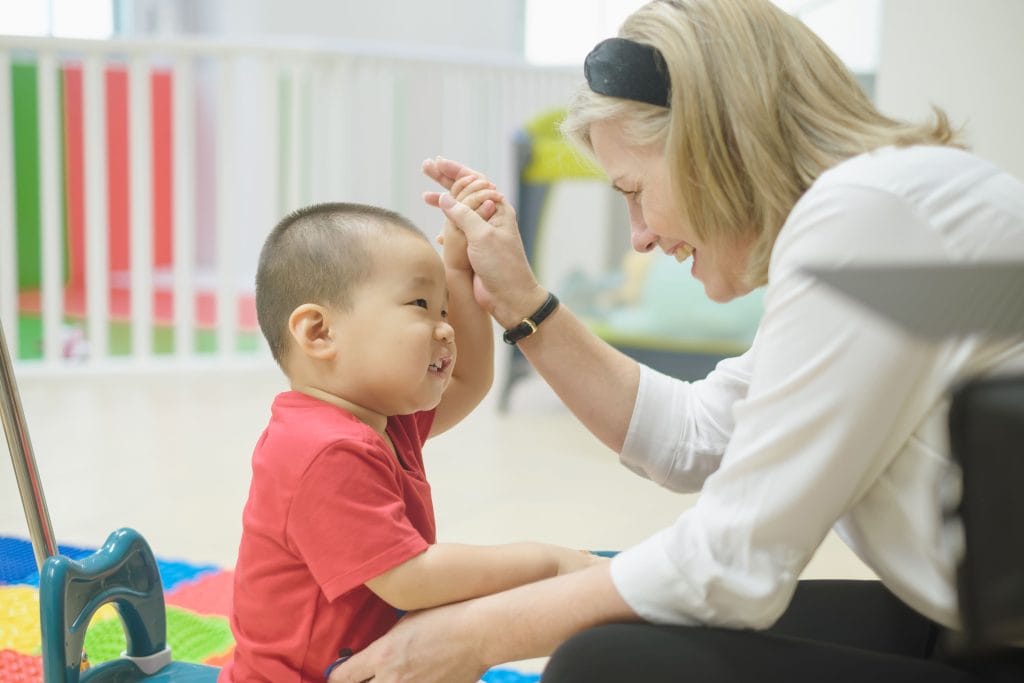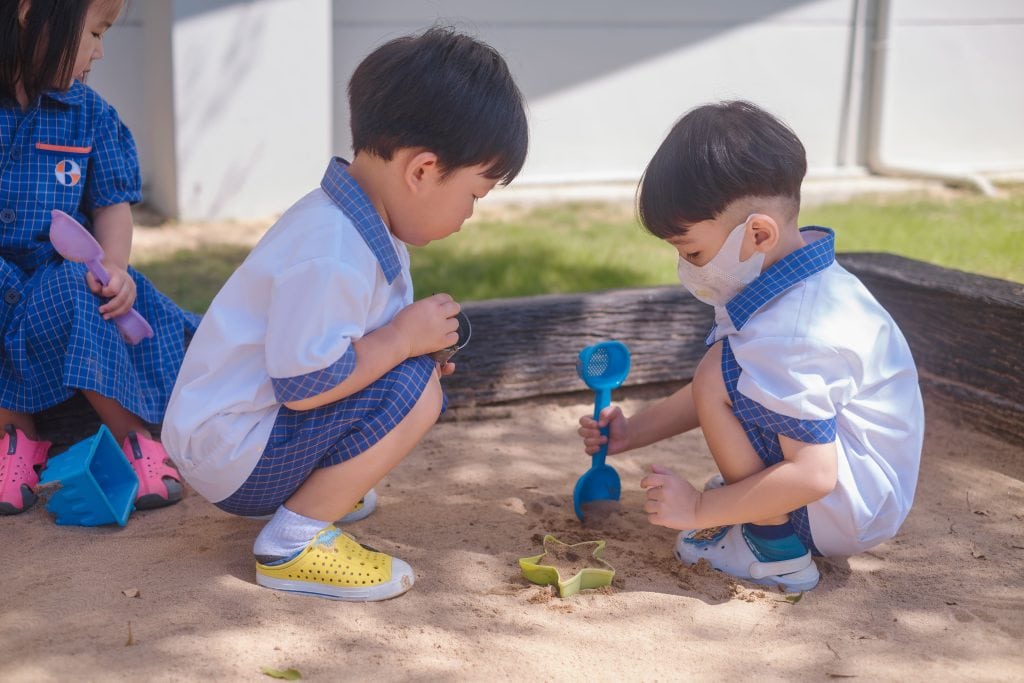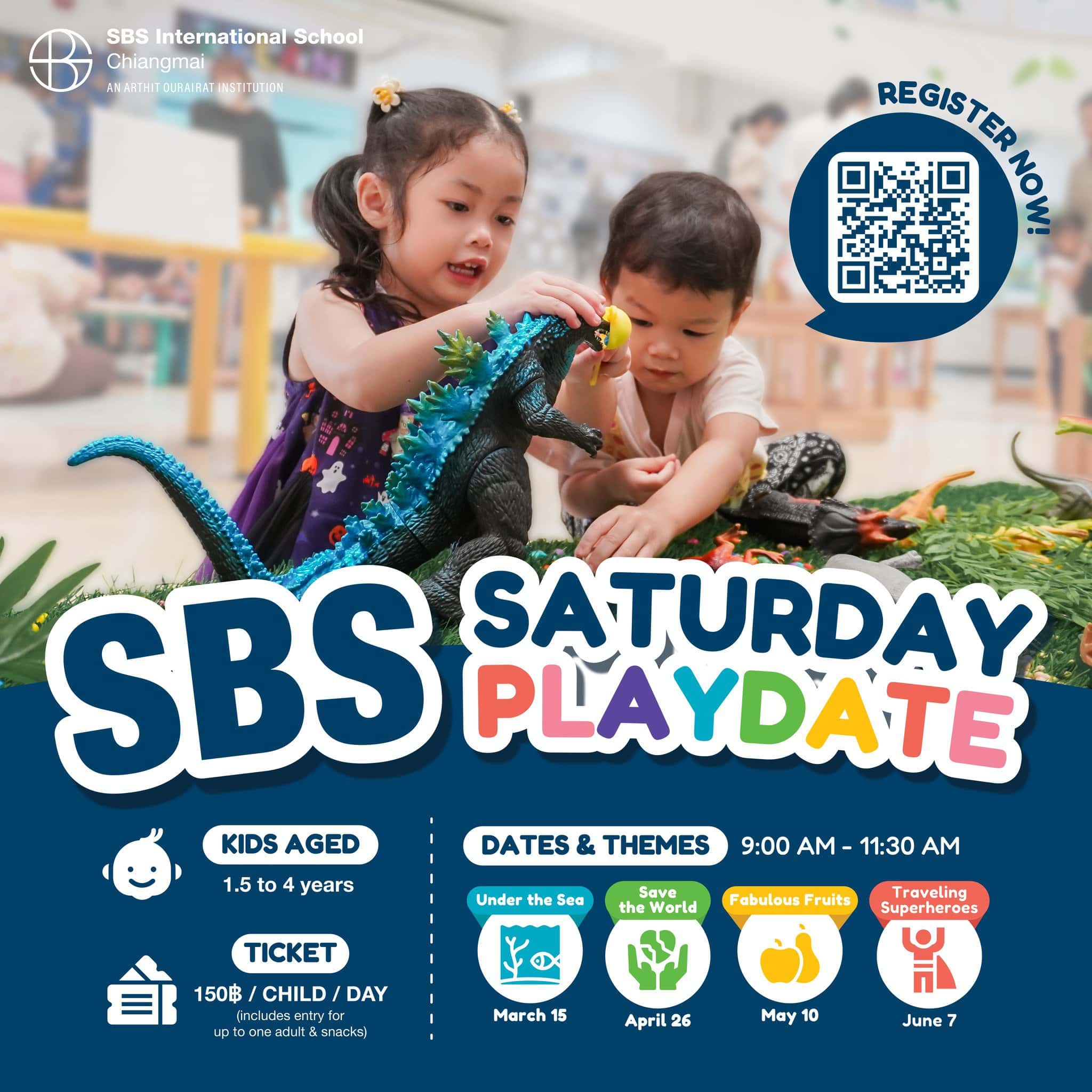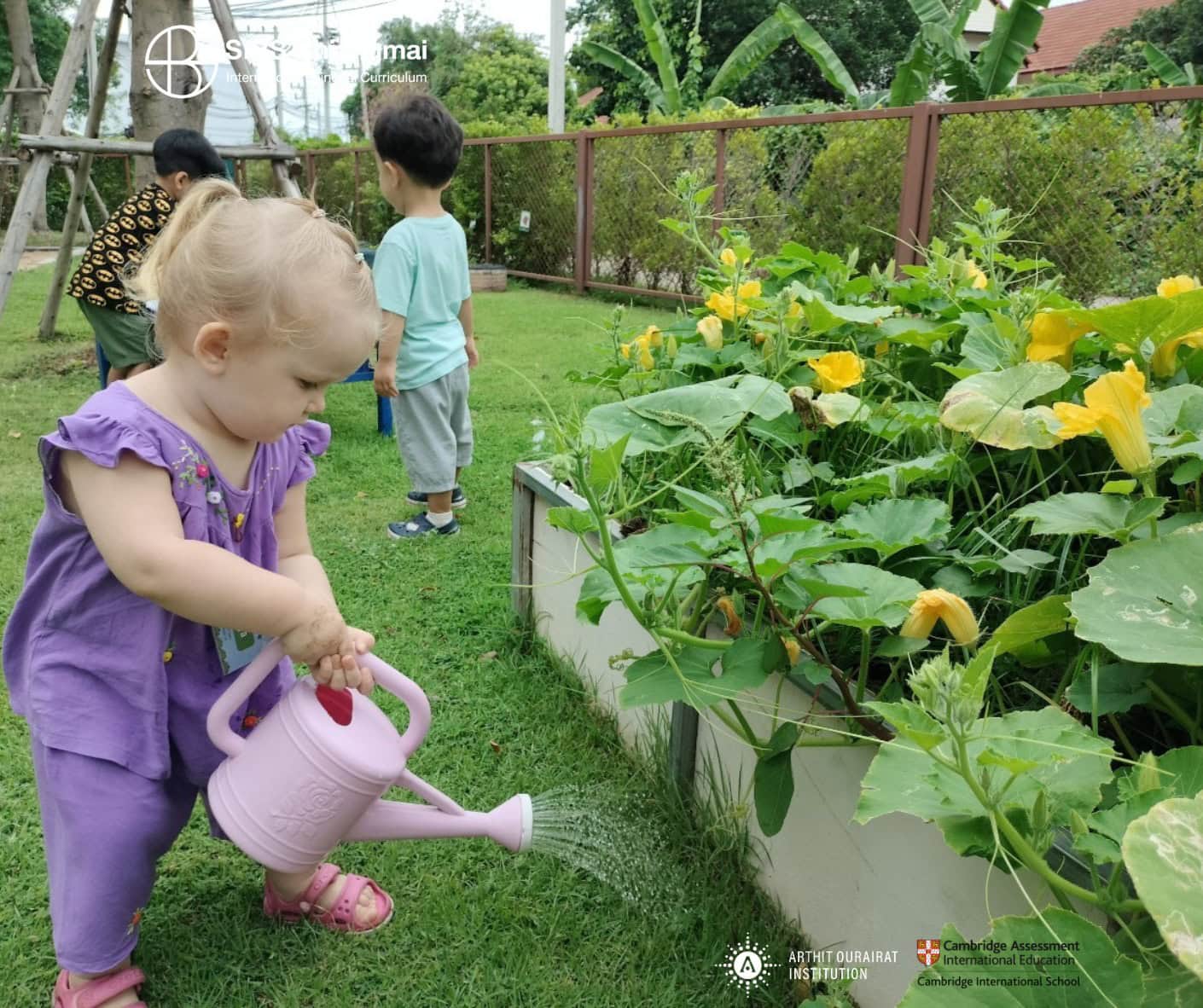Early Years Foundation Stage (Kindergarten Programme)
Happy Learners
At SBS Kindergarten we follow an Early Years Framework which is tailored to the needs of our children. The Early Years is an important stage in your child’s learning that lays the foundations for their future. Young children learn most effectively through a balance of child-initiated play and through activities designed to support the developing needs and interests of children. Our Early Years staff work as a team to plan for children’s learning in seven key areas identified within our framework, ensuring their skills are built progressively and with consideration of individual children’s needs and interests.
Characteristics of Effective Learning
The Characteristics of Effective Learning and the Prime and Specific Areas of Learning and Development are all interconnected. Bringing children’s learning together so that they can make sense of it through developing and building on their understanding in the world around them is our key to our provision at SBS.
The ways in which your child engages with other people and their environment – playing and exploring, actively learning, creating and thinking critically – underpin learning and development across all areas within our programme and support them to become an engaged and motivated learner. Your child’s holistic growth is what we focus on.
Active Learning
Our children demonstrate active learning when engaging in activities that require them to use their mental abilities, as well as their physical skills. At SIBS Kindergarten we guide our children to develop a ‘can-do’ attitude when attempting to do a task or challenge, so that they begin to understand the importance of concentration and resilience in their approaches to learning. We value the emergent ideas and interests which our children have an this helps us to stimulate their motivation towards learning.
Creating and Thinking Critically
At SBS Kindergarten we provide our children with many opportunities to work things out on their own or with others, developing their reflective and problem solving skills. We encourage our children to ask questions about how things work, make observations and absorb key information. We enjoy making links to previous learning, making predictions and testing out the ideas which come from the children. These are all key important ingredients contributing to your child’s development.
Playing and Exploring
At SBS Kindergarten we encourage our children to use their senses to explore the world around them, engaging in ‘open-ended’ play activities that they initiate themselves through showing curiosity about objects, people and events and by engaging in new experiences which are unique to them, learning through trial and error. Imagination is key! Pretending objects are things from their own experiences, acting these out and taking a role in their play is actively encouraged in our early years.

Early Benefits of Bilingualism
“Bilingualism’s benefits start at a very young age, helping children develop stronger thinking skills, better self-control and improved performance at tasks that require focus, remembering and making decisions.”
– Apiramon Ourairat, Ed.D, Chief Executive Officer
Holistic development
We achieve holistic development using the constructivist teaching methodology, allowing children time to develop in all areas of learning and development. Little ones may have short attention spans, but their curiosity is boundless. Through a wide range of interactive provision, we ensure our children are happy and engaged.
The seven areas of learning are:
Prime Areas:
- Communication and Language
- Physical Development
- Personal, Social and Emotional Development
Specific Areas:
- Literacy
- Mathematics
- Understanding the world
- Expressive Arts and Design
The international Cambridge curriculum starts in the Reception year. Our early years programme ensures that all our children have a happy, secure and safe foundation so that all our children are ready to engage with the Cambridge programme at five years old.
Communication and Language Development
We promote rich language experiences from a young age. We achieve this through age appropriate literature, projects, poetry and rhyme, group work, dramatic role play and a meaningful print rich environment which is authentic and relevant to the children.
Mathematics
Our programme offers opportunity for children to build and develop skills in math concepts such as number, shape, space and measurement etc. Children are challenged and have opportunities to problem solve and innovate ideas independently and collaboratively.
Physical Development
We provide countless opportunities for our children to be active and interactive in their learning environment. We provide opportunities for children to develop coordination, self control and movement while actively making healthy choices in life.
The World
We value the importance of connecting children to nature and the outdoor world around them. Whenever possible, we enjoy exploring outdoors and all it’s natural wonders. We encourage the our children to take risks, get messy and embrace challenges and adventures outdoors. Our programme incorporates extended opportunities for children to learn outdoors and encourages motivation in each child.
Social and Emotional Development
We encourage children to adopt a positive sense of themselves and others. We acknowledge our growing changes and behaviors through addressing our feelings, respect for others and understanding of appropriate positive choices.
As a member of our Early Years community, children learn to work cooperatively as part of a group or class and develop their understanding through collaboration. They learn routines and class expectations and they adjust their behaviour to different situations and take changes of routine in their stride as their resilience, independence and confidence grows.
Expressive Creativity and Imagination
Enabling explorations through creative play. Expression of our feelings and interpretations are encouraged through art, music, dance, sensory play, design and technology. We place value on the creative thoughts and ideas which emerge from the children and use this to drive our programme forward.
A happy child who loves to learn is what we aim for, laying the foundations for a bright, focused and confident primary school student.
Early Literacy
We follow the Jolly Phonics British programme for developing early literacy in our early years programme. Children learn and explore the synthetic phonics method of letter sounds actively in a way that is fun and encompasses a sensorial approach to learning. Beginning early reading and writing strategies are addressed to support our children and excite them in activities.

Constructivism Method
Constructivism Emphasises Making Discoveries
Constructivist teaching is a based on an educational theory that says children learn by constructing meaning based on their experiences. As children explore, engage with others and reflect on their experiences, they build new levels of understanding. Constructivist teaching emphasises students as active learners and prioritizes exploration and questioning. It’s appropriate in kindergarten, as 5-year-olds are naturally curious and trying to make sense of the world. With guidance and encouragement, their love of learning can blossom.
Student Led
Constructivist teaching shifts away from teacher-directed learning to student-led learning. Rather than being the distributor of knowledge, the teacher acts as a guide. The teacher takes cues from student interests and learning styles. Students are encouraged to take initiative and ask questions. For example, in science, student observations and interest in changing autumn leaves might lead to an in-depth study of this topic. Students may collect, sort and categorize leaves. Some activities may originate based on student suggestions. For others, the teacher will guide students to greater understanding, perhaps by reading aloud to help answer questions or suggesting different challenges for sorting.
Using Questions
Student questions are taken seriously and encouraged in constructivist kindergarten classrooms. The teacher will guide students to find the answers to their questions. Students don’t come to think of the teacher as the source of all knowledge. They’re guided to find answers themselves through exploration, books and discussions. The teacher also uses questions to get students to think more deeply. The teacher may ask students questions to challenge them to consider more possibilities or consider why something happened. For example, when learning about plants in science, the teacher will ask questions such as, “What would happen if we didn’t give our plant water?” Students could then do an experiment to find out. This would be followed up with, “Why do you think that happened?”
Assessment
Students are involved in evaluating themselves and assessing their own learning. At the kindergarten level, students need a lot of modeling and guidance to effectively evaluate themselves. Time is given for reflection. The teacher can model self-reflection for students including what was learned and what could be done better. Students do not do a lot of worksheets to be graded. Instead they are graded on academic growth as demonstrated through performance on projects and teacher observations throughout the day. In kindergarten, valuable observations occur during circle time and center time. Mini conferences in which the teacher briefly joins a student to ask about his work can shed light on growth for both teacher and student.
Collaboration
Working together to solve problems is important to creating meaning. In constructivist classrooms, the teacher is not the only expert. Students can learn from each other. When children are solving problems they are given the chance to work together. This allows them to bounce ideas off each other and build meaning. Preconceptions might be challenged. New learning is more likely to occur when children come to understandings themselves. Students take control of their learning and realize they can be experts, too. In kindergarten children are learning beginning addition. When working together to play a game that requires adding the numbers on two dice, students can learn math strategies from each other. One may notice his friend quickly getting an answer by counting up from the larger number. The child may they then try and master this strategy himself. He has built on his knowledge of addition by learning from a peer.
Parent Handbook
For more information please read our parent handbook below:
Saturday Playdates
For more information on how to join our Saturday Play and English Club, please click on the plus sign up using the QR below:


